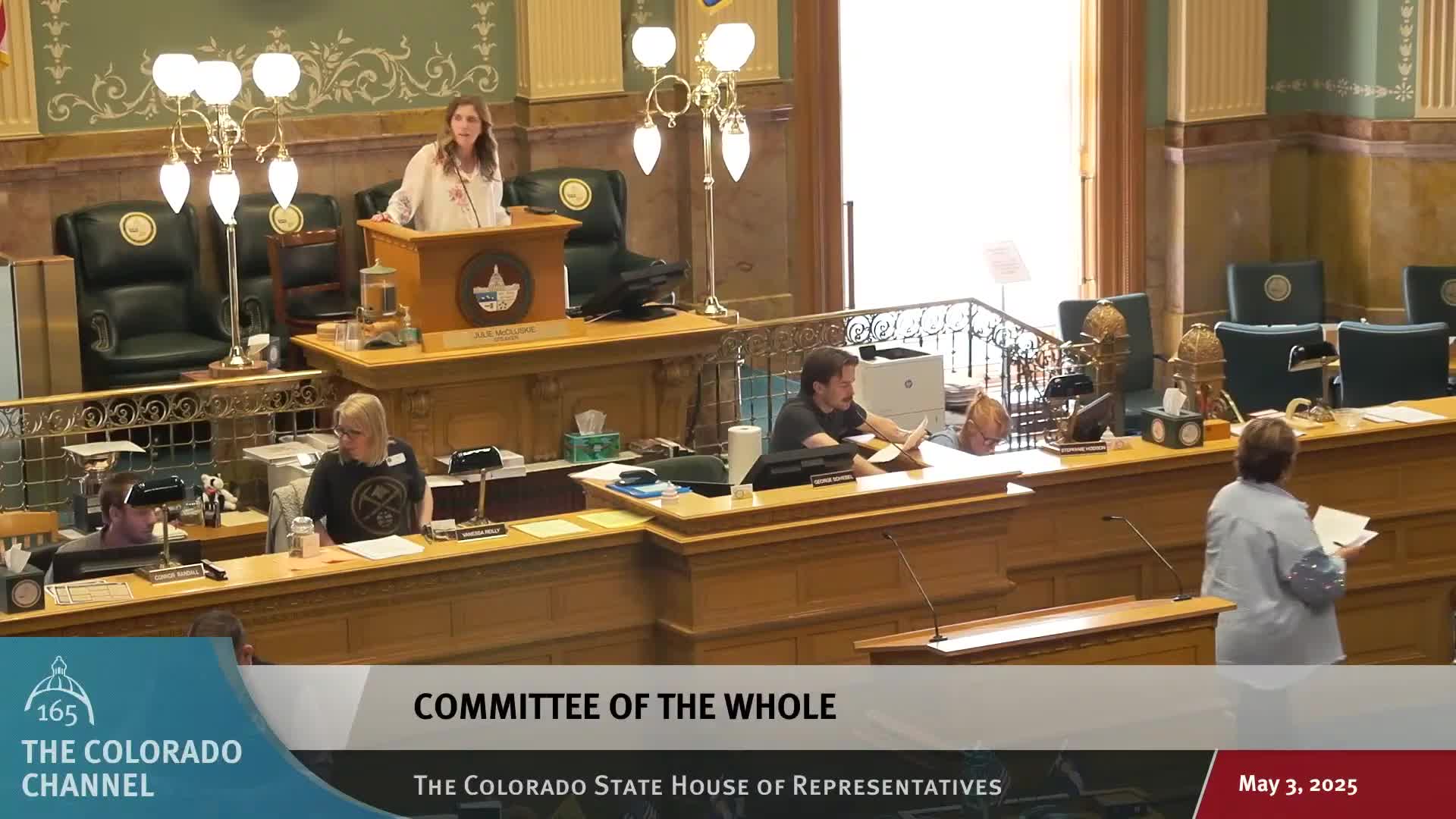House passes voluntary firearm-purchase waiver for people in crisis after heated debate over ID, privacy and intervention
Get AI-powered insights, summaries, and transcripts
Subscribe
Summary
The Colorado House on May 3 passed Senate Bill 34, establishing a voluntary mechanism that lets people ask the state to block their ability to purchase a firearm as a suicide-prevention measure.
The Colorado House on May 3 passed Senate Bill 34, establishing a voluntary mechanism that lets people ask the state to block their ability to purchase a firearm for a set period as a suicide-prevention measure.
Supporters said the policy gives people a way to prevent impulsive self-harm. "This bill is about saving lives by empowering individuals to proactively protect themselves during periods of crisis," Representative Jackson said when introducing the bill.
Advocates and drafters described the program as voluntary and said it would operate through background-check systems handled by Colorado Bureau of Investigation (CBI) and Department of Public Safety (DPS). The bill gives DPS/CBI rulemaking authority over verification and implementation; under the bill a person who requests removal of a waiver must wait 30 days after the bureau accepts the revocation before the prohibition lapses, a detail several lawmakers criticized as too long.
Lawmakers pressed sponsors on several implementation risks: how CBI would verify identity in an era of forged documents and synthetic media, whether the online portal could be weaponized by others filing false submissions, and how quickly CBI would remove names from the database once someone seeks revocation. "CBI is so far behind on so many other things," Representative Bradley said, citing criminal lab/backlog concerns and asking how long revocation would take.
Members offered and debated multiple amendments aimed at reducing fraud and protecting contact persons. Representative Armagost offered an amendment (L4) requiring two government-issued IDs for enrollment; proponents argued it would prevent coercive or fraudulent sign-ups, while opponents said CBI already has verification procedures and DPS rulemaking could set standards. The L4 amendment failed on the floor.
Other amendments addressed: (1) allowing a contact person to request removal as a contact (L8); (2) creating a sheriff-notification welfare-check when a person on the list attempts a purchase (L9); (3) clarifying that contact people bear no liability (L11); (4) reducing the 30-day post-revocation delay (L12); and (5) adding a required on‑form disclaimer about the 30-day revocation period (L5). Most of those amendments were debated and rejected on the floor; L9 (welfare-check by local sheriff/co-responder) drew strong support from members who said it offered an intervention rather than a purely punitive penalty but was opposed by sponsors who said it could chill voluntary participation and impose unfunded mandates on local law enforcement. Several attempts to add baseline verification language and other protections were similarly voted down. Vote tallies recorded in the transcript show multiple amendment votes failing (for example, a recorded committee-of-the-whole vote on an Armagost amendment was 23 yes, 38 no, 4 excused).
The bill includes a civil infraction and a $25 fine for attempting to purchase a firearm while blocked; supporters said the penalty discourages frivolous checks of the national background system and aligns with FBI access guidance. Opponents argued that penalizing people who may be in crisis is inappropriate and that an enforcement response should prioritize welfare and treatment.
The House adopted the bill as amended and passed Senate Bill 34. Sponsors and several members said the program is intended to be confidential and voluntary and that rulemaking at DPS/CBI will determine final verification and notification procedures. Representative Basenecker cited state suicide statistics during debate, noting that a high share of Colorado firearm deaths are self-inflicted and arguing the measure could save lives by preventing impulsive, lethal attempts.
Ending
With final passage on May 3, Senate Bill 34 moves forward following a floor debate that focused more on implementation and safeguards than on the bill’s stated purpose. Sponsors and critics agreed on the intent — preventing firearm suicides — but they sharply disagreed about how to verify signups, how to protect contact people, and whether intervention (a sheriff welfare check or co-responder visit) should be required when someone on the list attempts to purchase a gun. The bill as passed relies on DPS/CBI rulemaking to resolve many operational details.
